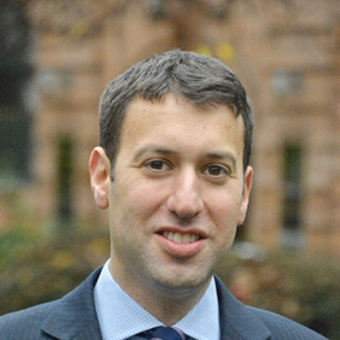Does Crime Pay? Asks Rachel Adamson, partner and department manager of the Regulatory team, Stephensons Solicitors LLP...
Does crime pay? It shouldn’t and that is what Parliament has been trying to achieve over the last two decades with the introduction of increasingly draconian legislation. This has been with a view to deprive criminals of their ill-gotten gains and to ensure that assets are not being invested in the financing of future serious crime and/or terrorism.
The increase of these powers has been gradual with the seizure and forfeiture of assets relating to drug trafficking. With the introduction of Deprivation Orders under S143 of the Powers of Criminal Courts (sentencing) Act 2000 we really see the start of how draconian these measures can get. A deprivation order means that a Criminal Court, when passing sentence, can also make an order to deprive the offender of property used, or intended to be used to commit or facilitate the commission of any offence. This could be a vehicle used in the crime such as a getaway vehicle or even a car used to drive whilst disqualified. Any item of property (except real property) used in this way can be made the subject of the deprivation as long as the prosecution can demonstrate that they have conducted a full and proper investigation for the order to be granted. In addition the Court needs to have regard to the value of the property and the likely financial or other effects if the order is made. The order should not be made if it will cause the offender undue hardship and there has to be consideration of the ‘totality principle’ for the overall punishment of the sentence imposed.
These orders are the most similar to the powers given later in Section 23A of the Terrorism Act 2000. This Act was amended in 2008 to allow the forfeiture of any money or property of someone convicted of a terrorism offence. If the money or property was in the possession or control of the convicted offender at the time of the offence and it was used, intended to be used or the Court believes it will be used for the purposes of terrorism then the Court may order the forfeiture. This is a wider-reaching power as it does not exclude real property. This is largely aimed at the prevention of financing terrorism and indeed it is an offence to facilitate the financing of terrorism.
Alongside these measures, the Proceeds of Crime Act 2002 has also had far-reaching effects since its introduction. This Act gives the Court the power to make confiscation orders where the court has determined that the offender has a criminal lifestyle. This has a very specific definition and a criminal lifestyle can be one of three things. Firstly if the offender is convicted of any of the following offences:
• drug trafficking;
• money laundering;
• directing terrorism;
• people trafficking;
• arms trafficking;
• counterfeiting;
• intellectual property;
• pimps and brothels;
• blackmail;
• an offence of attempting, conspiring, inciting, aiding, abetting, counselling or procuring the above offences.
Secondly, if the offending behaviour forms part of a course of criminal activity (more than four offences) and finally if the offence is committed over a six month period.
The Court also has to determine if the offender benefited from the general criminal conduct or the particular criminal conduct. This benefit has to be of at least £5,000.
If the Court decides there is general criminal conduct then this is where the powers start getting draconian. There is then the power to calculate the benefit of the general criminal conduct using assumptions. The Act allows the Court to assume that any money or free property transferred to the offender in the six years preceding the date of the criminal proceedings being commenced is gained as a result of criminal conduct and also any expenditure is met through the gains of criminal conduct.
The onus is on the offender to prove otherwise. For instance if the offence was one of fraud conducted through a company then the whole turnover of that company can sometimes be included in the calculation of the benefit figure. It is for the offender to show, if many transactions were in fact legitimate.
Once the Court has settled on a benefit figure (the exact benefit gained from criminal conduct) then the Court must calculate a completely separate figure and that is the available assets. This is any assets owned by the offender and even includes assets transferred away from the offender if they are considered ‘tainted gifts’. So it isn’t possible for someone to simply transfer the property to someone else in the hope that this will not be included. It will be included and it is up to the offender to try and secure the return of that asset.
Another difficult issue is the suggestion of hidden assets. If the benefit figure is significantly higher than the available assets figure the Court can assume that the difference has been hidden away and can include that as an asset. The obvious downside to this is that if the money really doesn’t exist then it will be impossible to meet the confiscation order made.
The confiscation order is made to pay back the value of the benefit figure from the available assets. This means that the available assets need not be the proceeds of crime for example, if you inherited a house 20 years ago that can be used to repay the value of the benefit. This of course means that contrary to popular belief offenders can lose any assets they have not just restricted to ill-gotten gains.
The upshot of this is the enforcement of the order. If the confiscation order remains unpaid the offender will have to serve a prison sentence in default. The debt remains once the sentence is completed as well, unlike other financial penalties such as a fine.
So does crime pay? Not for many who have faced the full force of this law but for many others I suspect they really don’t care and the sentence in default is not much of a deterrent.
---
Visit www.stephensons.co.uk
Follow Rachel on Twitter @ukfraudlawyer
Email rja@stephensons.co.uk












